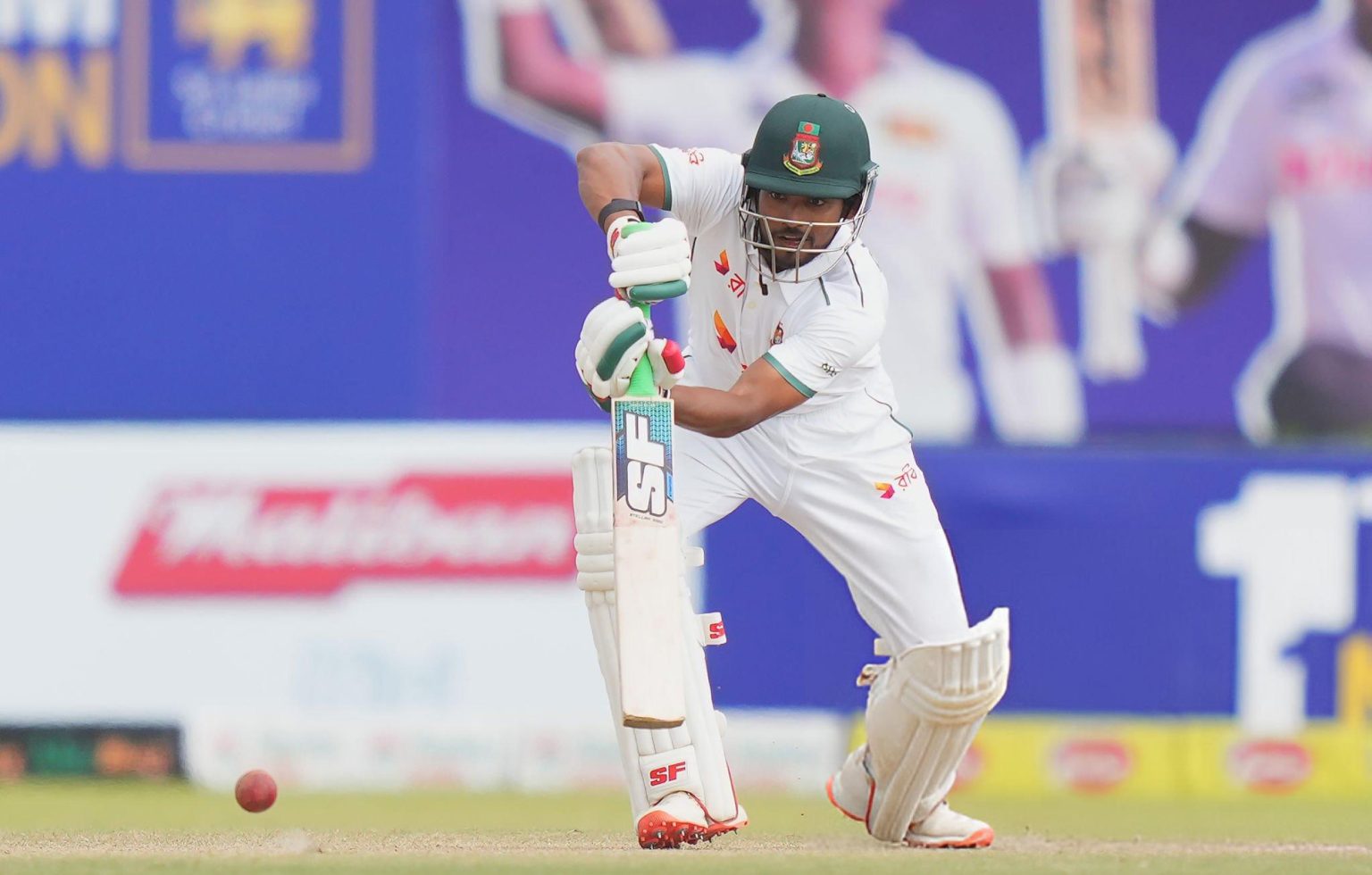Najmul Hossain Shanto crafted his own slice of history in Galle. His twin centuries underlined a captaincy defined by poise and purpose. Yet by the end of the five-day contest, with Sri Lanka on the ropes at 72 for 4, a different conversation was beginning to stir: did he declare too late?
Bangladesh, after bossing large parts of the match, walked away with a draw that felt more like a win than a stalemate. Still, the tantalising possibility of a rare overseas Test victory had many asking: had Shanto pulled the plug on the innings earlier, could his spinners have sealed the deal?
Shanto’s 125* in the second innings followed his first-innings 148—a feat never before achieved by a Bangladesh captain and only the second time a Bangladeshi had scored centuries in both innings of a Test twice. Alongside Mushfiqur Rahim, who scored a classy 163 in the first innings and added a brisk 49 in the second before being run out, Bangladesh mounted a towering total.
Their 285-6 declaration set Sri Lanka 296 to win in just 32 overs—on a crumbling surface, against a confident spin attack. The chase was never on, but Bangladesh’s late burst, spearheaded by Taijul Islam and Nayeem Hasan, sent four Sri Lankan wickets tumbling, sparking what-ifs all over the cricketing world.
The conservative declaration has sparked fierce debate. Critics argue Bangladesh had batted too long, especially with the threat of rain looming and Sri Lanka showing little appetite for a chase. Shanto’s side might have bowled 10-15 more overs had they pushed for a declaration just after lunch, or even earlier.
Yet Shanto stood by the timing, citing weather disruption as a key reason plans had to be rethought.
“We would have declared earlier but the rain arrived. The rain in fact suddenly came and the plan suddenly changed. We cannot control those things,” he explained after the match.
There’s merit in his logic. At 177-4 on the final morning, Bangladesh could easily have lost quick wickets on a pitch turning square. Mushfiqur’s untimely run out, too, may have injected caution. Shanto, anchoring from one end, ensured Sri Lanka would have zero chance of sneaking a win should Bangladesh collapse.
And while hindsight may raise an eyebrow at the late declaration, it’s easy to forget: Bangladesh did not lose a Test in Galle. In fact, they ended with more momentum and clarity than their hosts.
Had the match gone on another session, a Bangladesh win might have been the headline. Taijul and Nayeem ripped through Sri Lanka’s top order on a pitch that looked increasingly treacherous. Nayeem, who took five in the first innings, was relentless with his angles and flight. Taijul, Bangladesh’s spin linchpin, extracted vicious turn and bounce.
Shanto was full of praise for the pair: “The way Taijul and Nayeem bowled was really good. In these conditions, the way Nayeem bowled in the first innings, it was brilliant.”
The late surge validated their threat—and arguably the notion that more time might have turned dominance into victory.
Sri Lanka skipper Dhananjaya de Silva admitted that his side let the game drift away during Bangladesh’s marathon first innings.
“It was a flat wicket, but we conceded too many runs. That’s an area we have to cover in the next match,” he said, also applauding the efforts of Shanto and Mushfiqur for their unrelenting pressure.
The Colombo Test now becomes decisive. Shanto’s stock as a captain continues to rise, and Bangladesh will know they had Sri Lanka cornered. Whether the late declaration was a missed chance or smart risk management is up for debate.
What’s not in doubt is that Bangladesh left Galle having outplayed the hosts. And with one Test to go, they may not just be aiming to match Sri Lanka, but to beat them.


